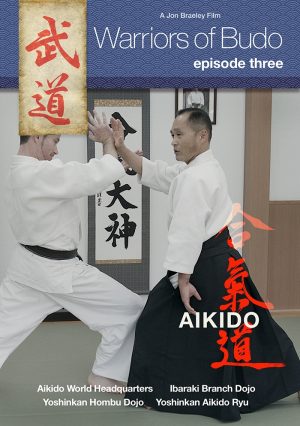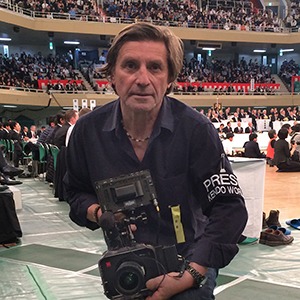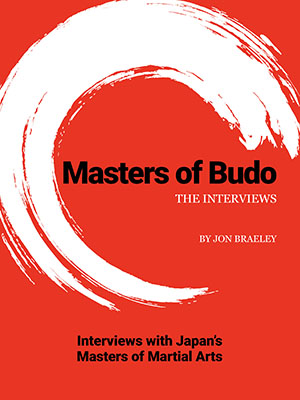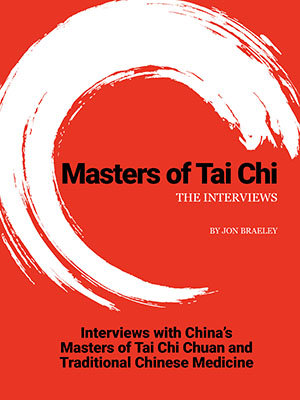This week marks The Empty Mind first interview, our 20th anniversary no less! Below is a short account of this first interview with perhaps the most celebrated martial arts master in Japan, Moriteru Ueshiba, known as Doshu. The photo above was taken during our interview in his second floor office at the Aikikai Hombu Dojo. We include other photos that are published for the first time.
We have interviewed the head of Aikikai, Moriteru Ueshiba, known as Dōshu, three times. My first interview with Moriteru Ueshiba, took place twenty years ago this week in 2003, at the Aikikai Honbu Dōjō in Tokyo. Moriteru Ueshiba, to the very few people on the planet who may not know, is the grandson of the founder of aikido, Morihei Ueshiba, known as Ō Sensei and who is considered one of the most important figures in the history of Japanese budō. Ō Sensei likened aikido to the sword saying it “Empowers one to cut through and destroy all evil.”

Jon Braeley and film crew filming class before the interview
Moriteru Ueshiba, the grandson of the founder was born in 1951 and received the hereditary title of Dōshu in 1999 when he became the head of the Aikikai Foundation after the passing of his father, Kisshomaru Ueshiba. Like his father and grandfather before him, Moriteru Ueshiba works each day to preserve the legacy of aikidō for the future, teaching at the Aikikai Honbu Dōjō and spreading the art globally through the International Aikidō Federation.

Moriteru Ueshiba teaching at his daily 6.30am class
The interview was part of our first documentary, The Empty Mind. The concept of this documentary was to unite all the various martial arts of Japan and China through their common philosophies rather than styles (which are very different). We felt the concepts in martial arts contained common elements regardless of style, be it Shaolin Kung Fu or Japanese Karate or Chinese Tai Chi and Japanese Aikido. With that in mind, our interview with Moriteru Ueshiba in October, 2003 was slanted toward concepts rather than actual martial art technique or training.
The interview took place at the Aikikai Honbu Dōjō in the private office of Dōshu on the floor below the main dōjō, after the end of his regular first class of the day, which begins at 6.30am. After formal introductions were made, I presented Dōshu with a gift. It just so happened that the Florida Marlins baseball team, my local team in the U.S., had just won the World Series. And even though I have never seen a baseball game, I obtained a signed commemorative baseball in a transparent presentation box. Knowing how popular baseball was in Japan, I thought it would make a good gift. As I handed the gift to Dōshu I said that perhaps his son would like it. He held up the ball with a huge smile across his face and agreed it was a perfect gift for his son. After this I would present a small gift to the sensei before all our interviews..!
You are the grandson of Ō Sensei, a legendary budō master and the current Dōshu. Do you feel pressure for this responsibility?
I cannot say that I have never felt any stress or pressure as you say, in my life studying aikidō. However, since I have been growing up in this environment all my life, I do not have as much stress as people might think I do. This position that I occupy is something I am used to. (Laughs).

Moriteru Ueshiba having fun while teaching class. 2003
What advice can you give a student trying to get to the next level in their training?
As you have seen, the practice of aikidō is the repetition of exchanging one’s technique with one’s opponent. The defense of the attack can happen in a split second. Through this fast and strenuous practice, you polish your technique and your spirit. Nothing is perfect without effort but you seek perfection from multiple practice. So the aikidō that you seek is attainable only by repeating the practice many times with training each day. There are no matches or tournament competitions in aikidō. Every day effort is to practice. This is the most important.
Can you talk about ‘ki’, the internal energy that we hear about in martial arts. This is a difficult subject to understand in the West?
The word ‘ki’ is difficult for Japanese people to understand too! (Laughs). In Japan, people learn energy or ‘ki’ naturally from their daily practice and effort. We all have energy in ourselves, and therefore, we all have ‘ki’ within ourselves. By practicing aikidō, we learn how to concentrate and use ‘ki’ naturally. The natural energy coming out from you without intention is called kokyūryoku (breath-power). You learn to breathe correctly through the method of respiration.
In other words, kokyūryoku is to concentrate your respiration while in the state of mushin (lit. no-mind; emptiness, free from thoughts), and use your full energy in the most natural way. Not against the enemy. For example, when you are caught by the opponent very hard, you don’t release the opponent’s hand by fighting against the opponent. Watch and find out where the opponent’s weakness lies. Where the body is falling, and you use your energy toward the opponent’s falling direction. This is called using a technique of “ki” or respiration.
The budō we call aikidō, is one in which you become one with your opponent, and one with the universe
We just heard the word ‘mushin’, can you explain more about this term?
This is a difficult question. If you have various troubles and your thoughts are filled with daily matters during your practice, you are not concentrating during training. As Mr. Braeley mentioned before, ‘mushin’ is to empty your mind. This is as if you are a part of the universe.
The technique of sumikiri (perfect clarity) is that when you are practicing with the mind of mushin, you are fast and spontaneous and your movement becomes to “premeditated silence”. This premeditated state is called sumikiri. You reach this state of sumikiri through the technique of mushin and concentration. This technique does not come without great effort. You learn and reach sumikiri by everyday practice and effort.

The 6.30am morning class of Doshu is always well attended. 2003
How important is technique? Does aikidō have to be perfect to be effective?
Aikidō is not only about self defense or fighting. The aikidō we practice in our daily life also gives you better health of the body and better health of the spirit. But when it comes to practice in class, you practice aikidō with various people. You could see in our class this morning that we change partners all the time. Sometimes you win and other times you lose these encounters. From this kind of practice, you learn to use or adapt your technique differently for each opponent. It is not possible that you would use the exact same technique against every opponent.
In aikidō we call this maai. Through aikidō you learn to use this maai technique. To use the different techniques with the different opponents. A basic concept of aikidō is that you will come to understand the opponent you practice with. My hope is for students to practice more and more aikidō and through this will they will learn to understand other people. And to use what we learn in practice in our daily life. This is the spirit of aikidō.
THE END







